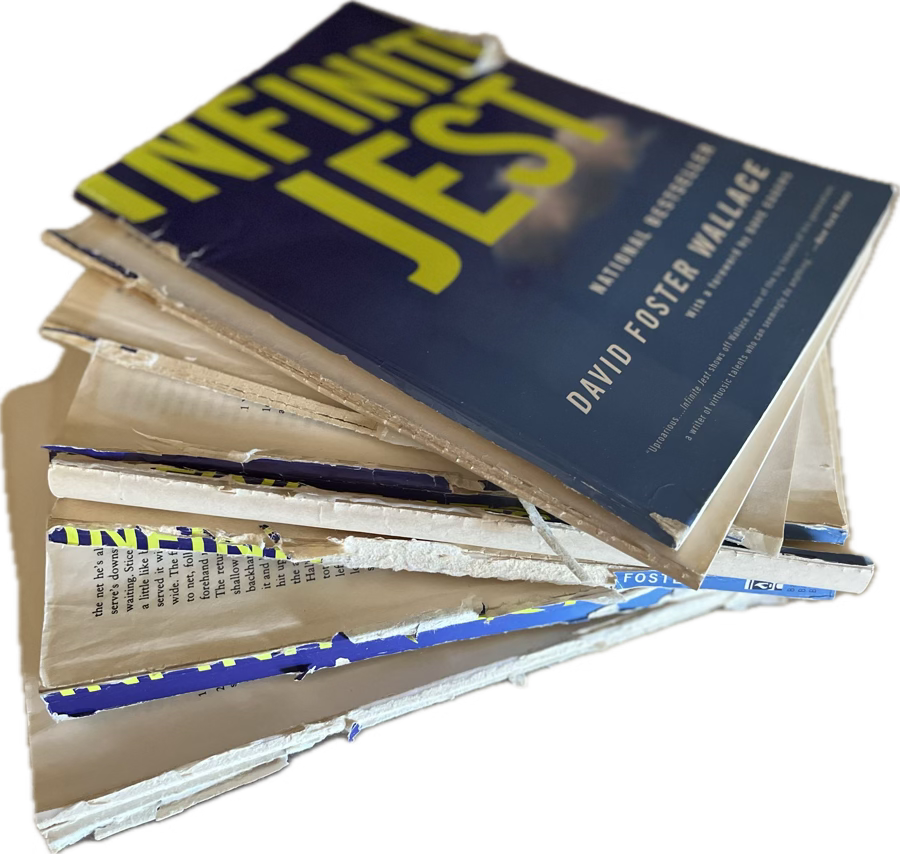Take the poll below. It’s entirely anonymous. And mildly fun.

Originally I had intended to paywall the soon-to-be-released podcast of my novel, A Footnote to Plato, but I changed my mind and decided to make it free.
Why free?
This was a hard decision for me, but after looking around Substack I’m not even sure there’s an audience for free novels here, much less literary novels starring white male philosophy professors falsely accused of sexual harassment. (Yeah, try selling that to an agent!) I could be wrong. But given that most authors don’t earn anything close to a living from book sales, I doubt it.
Consider this. Near the top of the Substack leaderboard for fiction, we see:
Who is touted everywhere for the serialization of her novel and boosted by Substack’s fellowship program. But then:
“When Elle got 45 paid subscribers, she contacted them to find out what made them pay and understood they weren’t reading her book—but it was the newsletter they dug. She changed the strategy to keep fiction free, which tripled her subscribers.”—Thousand Faces.
Even with all that publicity, her paid subscribers were there for her nonfiction.
It’s pretty clear what this means for me and my fewer than 300 subscribers and no publicity. All I can do is hope a few of you will enjoy my novel so much you’ll take note of the next book I write.
Details about my plan so far:
I’ll include a “Previous On…” recap at the beginning of each podcast episode.
The novel is already published, so you can be sure I won’t abandon the project halfway through.
Posting frequency: I debated this a great deal and in the end I thought I’d do 2-3 chapters at a time, roughly one hour per episode (except for chapter 1, which is all by itself for some reason.) I can send out more emails per week, but for now I’ll do one per week and see how it goes. I’d love to hear your feedback, especially since I don’t really listen to podcasts or audiobooks myself, except on long road trips.
I’m calling this a podcast, but it’s really my audiobook broken up into chunks with a wee bit of music added to the intro and end to make the podcast sound more…podcasty.
I kept the wind chimes I used in my audiobook even though pretty much no one understood that those were meant to replace paragraph breaks to signal a shift in point of view. How do you turn something like this:
…into sound?
I could have paused for a long time, but I know how I would react to a long pause while driving—WTF YOU STUPID PHONE READ BOOK NOW!—and I’m picturing myself reaching for the trusty old iPhone…which is buried in my purse…maybe…or fell on the floorboard?…or…and now that horrific accident scene from Your Honor is playing in my mind. I thought maybe ‘winds of change’ might get the paragraph break idea across, but wind is not exactly a pleasant sound to listen to. So I did wind chimes. Catch my drift? ;)
This is all very new for me and I appreciate your feedback on any aspect of this experiment.
What do YOU think?
Do you read serialized novels on Substack? Or elsewhere? If so, what do you like or dislike about the format?
Have you published a serialized novel? How did that go? What did you learn from doing so? Is there anything you wish you could have done differently? Tips to share?
Thanks!
Tina
"An academic novel and a novel of ideas, served up cheerfully and heroically by a very talented writer who doesn't care if both these genres are out of fashion. You shouldn't either."
--Ptolemy Tompkins, author of The Modern Book of the Dead
"Brilliantly confronts one of the great--and urgent--needs of culture: to reveal the often distant power of philosophy through the warm intimacy of a page-turning story. At last, Plato comes alive in the middle of modern America."
--John Armstrong, co-author of Art as Therapy with Alain de Botton
"In this captivating novel, Tina Lee Forsee skewers academic politics, takes us from Vermont to Greece and back, and makes Plato relevant (again) in reckoning with our purpose in life. The winning Alexandra, with her jumpy mind, the perseverating professor, brilliant but troubled Zeb, and a ghostly college president take us on a very lively trip into the cave."
--Meg Files, author of Writing What You Know
"A Footnote to Plato is precisely observed and amusing, playing the Platonic quest for virtue against the ethical regression of contemporary academia. Even without the Platonic material, the novel is, in spirit, knowingly playful in a way that Plato would surely recognize."
--Luke Slattery, author of Reclaiming Epicurus






I haven’t yet. But hope to. I am still figuring out how Substack works. 😂
You tore it up?! What a way to start the day 😀
Ever hear of a backpack?
I am probably in the minority in that I actually prefer DFW’s nonfiction to fiction—even though some aspects of it are dated, his essay collections, such as A Supposedly Fun Thing I'll Never Do Again are some of my favourite pieces of nonfiction I’ve ever read and a masterclass in how to write about ordinary things with great creativity as an outsider, if you want to say.
Well, as a musician-writer, I have some thoughts about sounds and music that can be used in tandem or in place of literature, especially as a composer, if you’re ever interested in trying to work together in some way..and yes I know for 99.99% of such things it’s all stock sounds, but it’s a fun idea.
You have a very good pleasant, neutral-middle America newscaster type voice.